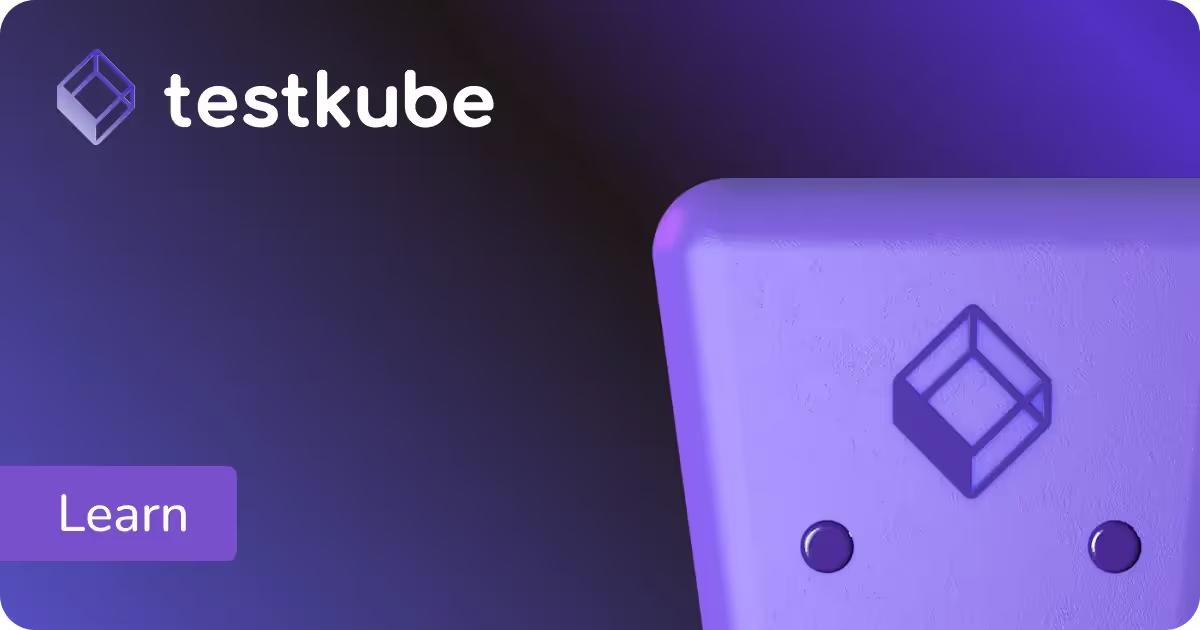

Table of Contents
Try Testkube instantly in our sandbox. No setup needed.
Try Testkube instantly in our sandbox. No setup needed.




Table of Contents
Executive Summary
Over the years, we've seen many testing tools that help us perform different types of testing on our applications. However, most of these tools struggle to align with the nature of Kubernetes as they weren't built for Kubernetes.
That’s where Testkube comes into the picture, it allows these conventional testing tools to leverage the benefits of Kubernetes while making them Kubernetes native. In this blog post, we will look at Testkube features and learn about all the testing scenarios that Testkube can help you with.
Types of Testing in Kubernetes using Testkube
Testkube allows you to perform different types of testing without any additional complexity. You can bring your existing tools to Testkube and just ‘plug’ them in to make them Kubernetes-native. Here are the types of testing you can perform using Testkube.
End-to-End Testing
End-to-end testing is a type of testing that verifies the entire software application from start to finish, including all the systems, components, and integrations involved in the application's workflow. You can simulate real-world scenarios to test your entire application to catch any issue that might occur in various modules of an application.
Testkube allows you to perform end-to-end application testing using tools like Playwright. With Testkube, you can easily automate your Playwright tests to perform end-to-end testing of your application. Read more on how you can use Playwright for end-to-end testing using Testkube.
Load Testing
Another critical testing scenario is load testing. Such testing is required to test how your application behaves under varied load conditions, including peak hours. Load testing helps determine an application’s response times and potential bottlenecks when multiple users access the application simultaneously.
Testkube supports different load-testing tools, including k6, JMeter, and Gatling, to name a few. You can configure JMeter on Testkube to perform load testing of your application in a Kubernetes-native way in the same way as you’d do otherwise.
Performance Testing
While load testing focuses mainly on the application’s behavior under load, performance testing takes a different approach. It aims to test the application’s overall performance, stability, reliability, and speed under different conditions. Its goal is to ensure that the application meets the specific performance benchmarks.
Testkube provides support for different tools, including K6 and JMeter, for performance testing. You simply plug your K6 into Testkube and start testing the performance of your application. The whole process is easy and quick. See how K6 integrates with Testkube to allow you to test the load and performance of your application.
API Testing
API testing is a form of functional testing that focuses on APIs directly to ensure that they return the correct data set and handle the requests correctly. Apart from that, we also focus on the security aspects of the API, ensuring only trusted requests are responded to.
With Testkube, you can bring tools like Postman or Ginko to your Kubernetes cluster and perform API testing more efficiently and effectively. If you’re using Postman, Testkube supports Postman collections, so you can bring your existing collection and start testing. See how Testkube integrates with Postman for API testing.
Frontend Testing
Testing the user interface and the user experience is a critical part of any testing process. Front-end testing focuses on this as it directly impacts how the users interact with the application. It ensures that the visual elements, functions, and interactions work as intended across different devices and screen sizes.
Using Testkube, you can use tools like Cypress or Playwright to perform UI testing for your applications hosted on Kubernetes. With tools like Cypress integrated into Testkube, you can test the UI of your applications in Kubernetes without breaking a sweat.
Security Testing
Security is of paramount importance, especially for big enterprises, and hence, testing to ensure your application is secured is vital. With security testing, you can check for any vulnerabilities and loopholes in your applications, validate access controls to sensitive modules and data, and take corrective action to harden your applications.
We can use tools like OWASP-ZAP to test for vulnerabilities in our online shopping application. It helps test common issues like SQL injections, cross-site scripting(XSS), unauthorized access to our application, or exposure of any sensitive data.
Testkube has native support for many security testing tools, including OWASP Zap, that helps scan and mitigate security vulnerabilities. Integrating Zap with Testkube, you can automate your security testing and allow security checks in your CI/CD pipeline.
Bring Your Own Testing Tool
There are hundreds of testing tools that help you perform different types of testing. While Testkube has support for the most popular ones, it’s difficult to provide support for all. But that doesn’t mean you cannot bring a different testing tool to Testkube.
With our Container Executor's feature, Testkube allows you to use almost any testing tool and make it Kubernetes-native. So, whether it’s a different testing tool or configuration, you can use the container executor and start testing in Kubernetes.
Summary
As discussed in this blog post, having a diverse testing workflow helps you improve the quality and security of your application and detect issues faster. However, most existing testing tools aren’t built to test your application that runs in Kubernetes and, hence, affect the efficiency of your testing workflows. Testkube transforms these tools to Kubernetes-native in simple steps, enhancing your overall testing efficiency.
We looked at different types of testing in Kubernetes and how Testkube helps to perform all of those using your existing testing tools without all the complexities involved in running those tools in Kubernetes environments.
Try out Testkube today and get first-hand experience of using it. Join our Slack community if you have any questions or need any clarifications.


About Testkube
Testkube is a cloud-native continuous testing platform for Kubernetes. It runs tests directly in your clusters, works with any CI/CD system, and supports every testing tool your team uses. By removing CI/CD bottlenecks, Testkube helps teams ship faster with confidence.
Explore the sandbox to see Testkube in action.






